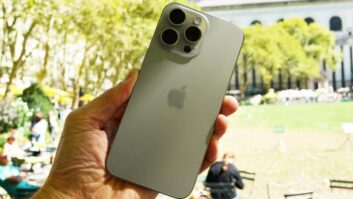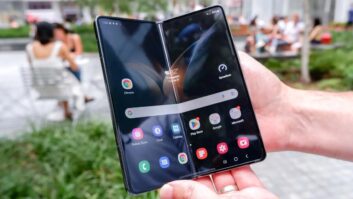Waterloo, Ontario – Research In Motion (RIM)
cited chip delays in pushing back shipments of smartphones using the new
BlackBerry 10 OS until the latter part of calendar 2012.
In the meantime,
the company will embark on an aggressive advertising and promotion campaign in
the U.S. and other select countries to boost lower than expected sales of
phones based on its current BB7 OS.
The company, however, is on track for
February availability of its PlayBook 2.0 tablet OS, which adds native
BlackBerry email, contacts and calendar apps as well as ability to play back
Android apps.
The smartphone advertising and promotion
campaign is “imminent,” one executive said, and it will promote the value
proposition of BB7 OS products through advertising as well as “special offers.”
Executives called the BB7 OS, introduced earlier this year after a delay, as
greatly advanced over the previous OS, adding such features as faster web
browsing and an “ultra-responsive touchscreen.”
Smartphones sales of 14.1 million units
for the third quarter ending Nov. 26 were below expectations, the company
admitted, and shipments will drop in the current quarter ending March 3, 2012,
to 11 to 12 million phones because of inventory buildup in sales channels.
The ad campaign will accelerate sales of
the BB 7 products as well as lay the groundwork for the BB 10 launch,
executives said.
The BB 10 launch, however, has been
delayed until the “latter part” of 2012, said co-CEO Jim Balsillie, because the
highly integrated chipset that the smartphones will use won’t be in production
until mid 2012. The chipset is being delayed because RIM wants a chipset that
will deliver an aggressive industrial design as well as lower power consumption
and higher power efficiency for use on 4G LTE networks, he said.
The BB 10 OS on the smartphones is a
converged OS that also runs on the company’s tablet.
Meantime, the company announced a
comprehensive review of all aspects of its business to improve its sales and
financial performance. The review will include product management,
manufacturing, the number of SKUs brought to market, supply-chain efficiency, and
R&D, but the review is not designed to reduce head counts, which have
already been reduced. The effort will also look into licensing opportunities
and opportunities to leverage BlackBerry infrastructure.
Investors might feel the company has
“fallen short” in financial performance and execution, said Balsillie, but he
noted the company remains profitable and grew its subscriber base 35 percent
year-over-year to 75 million for the fiscal third quarter ending Nov. 26.
Outside North America, hardware revenues rose 56 percent, he noted.
Regarding PlayBook sales, the company
said recent PlayBook promotions have worked out most of the PlayBook inventory
in the channel, but the company expects to continue running promotions on the
PlayBook because of market competitiveness in consumer and enterprise channels.
For the third quarter of RIM’s fiscal
2012 year, revenues fell 6 percent year-over-year to $5.2 billion, and net
income fell 71 percent to $265 million. About two-thirds of the $646 million
drop in net income was attributable to a $356 million after-tax write-down of
PlayBook inventory, $40 million after-tax charge due to a third-quarter service
interruption, and $6 million in an after-tax charge for a cost-optimization
program.
For the nine-month period, revenues were
flat at $14.3 billion, and net income fell 48 percent to $1.29 billion.
The U.S. accounted for about 20 percent
of the company’s revenues in the fiscal third quarter. RIM sells phones and service
in 175 countries.
All told, the company shipped 800,000
PlayBooks in its first three fiscal quarters, with only 151,000 shipped in the
third quarter and 500,000 in the second quarter. It’s available in 44
countries.













